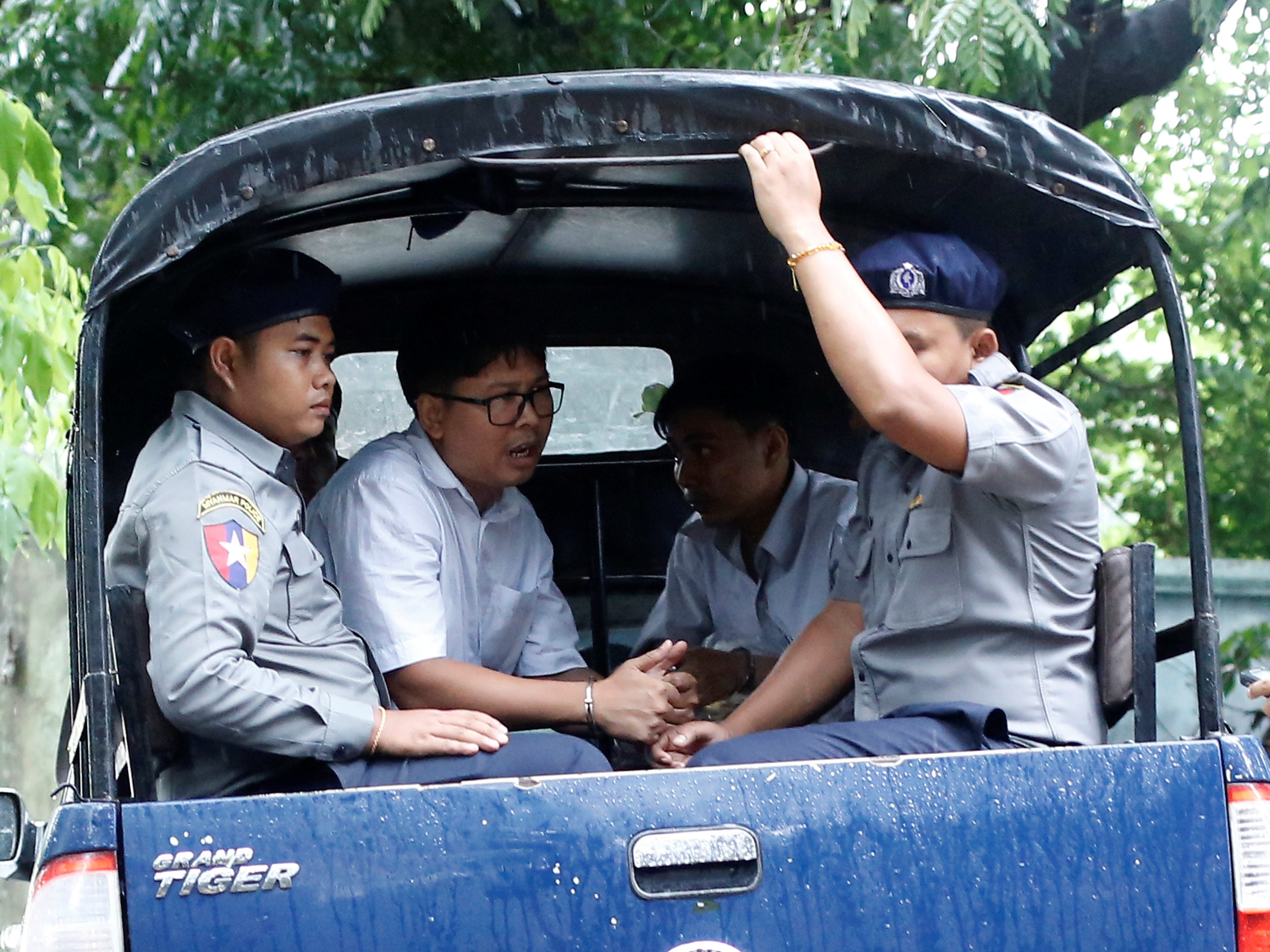
One of the two Reuters journalists detained in Myanmar since December after investigating the massacre of Rohingya Muslims has said “the truth of what we did can be revealed soon”.
Wa Lone was speaking to reporters as he left court yesterday after Judge Ye Lwin accepted the Reuters article he and Kyaw Soe Oo were working on at the time of their arrest into evidence.
Lone and Soe Oo had been investigating the killing of ten Rohingya Muslim men in the village of Inn Din in Rakhine state, Myanmar, and were arrested after being found possessing allegedly secret government papers.
The reporters were detained on suspicion of violating the Official Secrets Act on 12 December last year and have been in custody ever since.
The court in Yangon has been holding hearings since January to decide whether the reporters will be charged, which would see them facing a maximum of 14 years in prison.
The Reuters special report, which has now been accepted as evidence, was completed by two other reporters and published on 8 February under the headline “Massacre in Myanmar”.
The counsel for Lone and Soe Oo said yesterday that the article would “help shed light on the motive behind the reporters’ arrests”, according to Reuters.
As he left the court, Lone told reporters: “The court accepted the Inn Din story as evidence. The truth of what we did can be revealed soon.”
The court also accepted into evidence copies of newspaper articles which Reuters’s defence lawyers said showed the information in the “confidential” documents possessed by the reporters had been published before their arrests.
Lawyer Than Zaw Aung told the court the contents of “top secret documents”, which police said had been found on Lone and Soe Oo’s phones, were detailed in state-run and local newspapers so the information was “already known to the public”, Reuters reported.
Major Aung Kyaw San, a police IT expert called by the prosecution, said reporters should not possess such documents regardless of whether they were already in the public domain “without permission from related government authorities”.
The documents included government letters relating to a visit to Rakhine by Myanmar Vice President Myint Swe.
Zaw Aung told the court last week that evidence obtained from the reporters’ mobile phones may have been “tainted”.
He said that a one-word Whatsapp message – “OK” – was sent in reply to Reuters’ bureau chief in Myanmar from Lone’s phone at about 10pm on the day of his arrest.
Lone’s phone had been taken from him by police shortly after he and Kyaw Soe Oo were arrested at around 9.10pm.
“That means anyone could have access to the phones, so anything could happen to the phones,” a second defence lawyer, Khin Maung Zaw, told Reuters.
“All those messages they said were found in the phones may not be genuine or the phones may be tainted.”
In April police captain Moe Yan Naing claimed in court that Myanmar police were told to give the journalists “secret documents” at a restaurant in order to “entrap” them and that officers had been told “if you don’t get Wa Lone, you will go to jail”.
Reuters has since reported that, on 15 May, Police Director General Aung Win Oo said the evidence was untruthful. Yan Naing was subsequently jailed for a year for violating police discipline, but police said the sentencing was not related to his testimony.
Lone and Soe Oo have reportedly told relatives that they were arrested almost straight after they were handed some rolled up papers at a restaurant by two policemen they had not met before, having been invited to meet them for dinner.
Picture: Reuters/Ann Wang
Email pged@pressgazette.co.uk to point out mistakes, provide story tips or send in a letter for publication on our "Letters Page" blog
